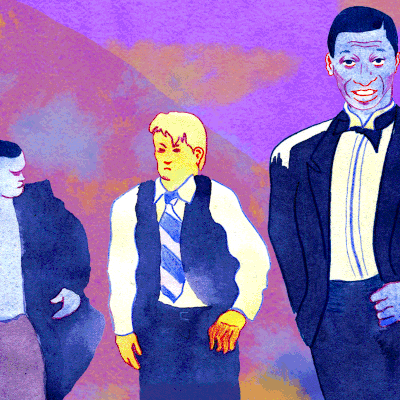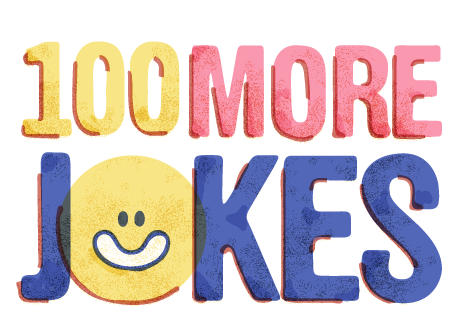
Nearly three decades before #OscarsSoWhite, the 1987 film Hollywood Shuffle put the entertainment industry on blast for perpetuating African-American stereotypes and limiting opportunities for black actors. The entire movie captures the absurdity of showbiz whitewashing, but does so with particular bite in the Black Acting School scene, a dream sequence about a slave film that morphs into a commercial for an academy where white instructors tell African-American actors how to convey their blackness. Robert Taylor (Robert Townsend), the main character reimagined as a British thespian who, moments earlier, was forced to play a half-witted slave butler, describes the array of classes offered — Jive Talk 101! Shuffling 200! — while congratulating a graduate who’s recently played nine crooks, four gang leaders, two dope dealers, and a couple of rapists.
The influence of Black Acting School’s mix of silliness and racially pointed critique has been felt many times since, particularly on sketch comedy series like Chappelle’s Show and Key & Peele. Townsend — the director, star, and co-writer, with Keenen Ivory-Wayans, of Hollywood Shuffle, which celebrates its 30th anniversary this year — recently spoke to Vulture about how the scene and movie came together.
How did the idea for Black Acting School evolve?
When I was doing stand-up, that was a chunk that I would do. I would play all the characters in it because, when I would have auditions, it was pimp. It was slave. It was illiterate basketball players. It was all these stereotypes. I would do just the auditions I was having. You know: “Act blacker.” You know: “You’re a jive-ass!” It came out of that.
Then, when Keenen and I started talking about doing the movie, I went, “We gotta do the Black Acting School where all these black actors go to get trained.”
What was the writing process like for you and Keenen?
His process is really different from mine. I need a legal pad. I’m going to write it down. He’ll see something and then he’ll go, “Yeah. And the slave should run away at the beginning and then you do …” We collaborate. I’m the one with the legal pad and I’ll think of a joke and then he’ll top a joke. He’s doing squats, he’s doing push-ups, he’s doing pull-ups. He’s always moving. And I’m like, “Sit down!”
We were laughing the other week about this because he’s like, “Rob, that was always my process. We’re both artists. I just do it differently. I’m listening to you. I look distracted. But I’m not.”
Black Acting School emerges from what’s supposed to be a slave movie. Was that part of your original stand-up routine, too, or did that come later?
That came later. In the routine, it was pretty much, “Man, I’m auditioning for all these bad parts. They need a Black Acting School in Hollywood to teach actors how to act black.” But when Keenen and I were coming up with it, Keenen was like, “Rob, it should be like a real commercial. Why don’t we start it with a slavery chase — you know, ‘Master gonna get us, we need to go!’ And then the butler comes up, because they always had the slaves that wanted to stay. Then you break the fourth wall like they do in commercials. Then you start what you were doing in your act. Start it there. ‘Hi, my name is Robert Taylor. I’m a black actor.’”
Was the scripted scene longer than what ended up in the film?
The scene that we wrote is what we have on the screen. The only thing that I will say is that when you have funny people, they will ad lib and build on the joke. Like when the actor’s saying, “You’re our graduate, tell me what you’re doing now.” And he goes, “I’ve played six tough cons.” We were just spitballin’ to add more stuff to it.
As comedians, while we’re on the set we’re constantly looking. Is there another joke there? Is there another joke there? I just remember Keenen would go, “Hey Rob, let’s push it a little bit more. Let’s try another one.”
You shot Hollywood Shuffle in a few days that were spread out over a few years. Where in that sequence did Black Acting School come in?
We shot it in 12 days, over two-and-a-half years. I kept running out of money and then I finally figured out: Use credit cards. The first thing we shot was the black-and-white sequence of the detective, Sam Ace. That was the first thing we shot. Then I want to say Black Acting School was in the second batch of days.
What was the production budget for Hollywood Shuffle?
It was under $100,000. We were basically shooting with short ends, the leftover film. I remember figuring it out, “Okay, I can pay my crew this much. I can rent the camera on Friday and say we didn’t get a chance to make it back, and then we can shoot Saturday and Sunday for free, and then bring it back first thing Monday.” I mean, every trick in the book we pulled.
We couldn’t afford editing early on, but I was like, “Well, where do they edit porno movies?” There’s a place in Chadsworth. So we went to Chadsworth and edited the first stuff. We were at a porno facility, where all the editors are working on porn. You can hear the dailies and they’re like, “Put your leg down. Put your leg down. Put your leg down. Turn your head to the camera.” “Oh, oh, oh!” You hear moaning in the room. And then us, in there going, “Winky Dinky Dog.”
As you were writing Black Acting School, were you thinking ahead to how people might respond to the material?
We didn’t really look at it from the point of view of, Oh my God, what are we saying? We were just going, “This shit is funny.”
I’ve been at auditions where there have been those directors that go [speaks in British accent]: “You’re a bad mo fo. Look at her! You’re a pimp. Pimp-slap her. Pap-pap, pap-pap.” I’ve had white directors tell me how to be black. “No, no, no, the pimp wouldn’t do that.” And you’re like, “Oh, okay.”
Keenen and I, as young actors, were going through this. We go, Well, let’s have them teaching us how to walk, how to talk, how to curse. When I put it together, all the actors that we cast in it, they had all been to the same auditions, so they knew exactly what we were talking about.
When you screened it for distributors, what was their response?
We didn’t show it to that many people. We showed it to the Samuel Goldwyn company [who became the distributors]. That was the first one we showed it to and they said, “We love it” and “We want to buy it.” I just remember Sam Goldwyn Jr. — he looked at the movie and the scene with Jheri Curl. He goes, “I don’t know what a Jheri Curl is, but I can tell this is going to be really funny.”
There’s a much more open conversation now about representation and better parts for black actors and other people of color. A lot of what’s in the movie still feels relevant, though.
It’s so funny because a few years ago, a movie came out about slaves and a movie came out about the butler. I just remember, I got all these tweets from people, and the line in the movie: “Brother, the only thing they’re going to let us play is a butler or a slave.” People were like: Hollywood Shuffle.
The game has changed a lot. But the film is always a reminder of where we started. A lot of things have changed in Hollywood now. There are so many different kinds of images of people of color. But back then, that’s all we had.
How often do you come in contact with actors or comedians who tell you they were influenced by Hollywood Shuffle?
There’s a whole generation of comedians — I can say Kevin Hart, I can say Jamie Foxx — that will come up. Dave Chappelle! Dave Chappelle said when he saw Hollywood Shuffle, it made him want to do sketch comedy. I remember having a conversation with him where he was just like, “Man, you laid the foundation.” Keenen and I, we were just having fun. But we were doing smart comedy. Silly stuff. But we were being political.
This interview has been edited and condensed.



